Retirement Investment Planning
Confident investing starts with a real plan
We’ll help you take the next step
Planning Retirement Shouldn’t Feel Overwhelming
At Dearborn & Creggs, we help educators, public employees, and families across Texas prepare for retirement with confidence. Whether you’re just getting started or approaching the finish line, we guide you through investment decisions that align with your goals, timeline, and risk tolerance. Our retirement planning process is designed to simplify your options, clarify your strategy, and help you turn savings into a steady income—so you can focus on enjoying life.
What’s Included in Retirement Planning
Smart, tailored strategies for your retirement goals
Our advisors offer personalized retirement strategies designed to fit your plan type, career path, and long-term financial goals.
Rollover & Consolidation Help
Changing jobs? We’ll walk you through rollover options and help consolidate old accounts into a focused strategy.
Social Security Coordination
We’ll help you decide when to start collecting Social Security and how it fits into your broader retirement picture.
403(b), 457, and 401(k) Planning
We help you understand your employer plan, contribution limits, and how to maximize benefits over time.
IRA and Roth IRA Guidance
We’ll help you decide between traditional and Roth options based on your income, tax bracket, and future goals.
Retirement Income Strategies
We’ll build a plan to turn your savings into sustainable income—factoring in taxes, inflation, and withdrawal timing.
TRS and Public Pension Support
If you’re part of the Teacher Retirement System of Texas or a municipal pension, we’ll help you fit it into your full retirement plan.
You Deserve More Than a Guess
The right plan turns stress into confidence
Retirement investing is about more than saving—it’s about knowing how your money will work for you when you need it most. Without a strategy, many people end up under-saving, paying more in taxes, or outliving their income. Our retirement planning services are especially helpful for Texas educators, city employees, and professionals who want professional guidance on pensions, IRAs, and long-term income strategies. We’ll help you move from uncertainty to clarity—with a plan that’s built just for you.
Retirement Investment FAQs
Answers to common questions we hear every day
When should I start retirement investing?
The earlier, the better—but it’s never too late to start. Compound interest rewards those who begin early, but smart investing can still make a major impact even later in life. We help clients at every stage—from young professionals opening their first 403(b) or 401(k) to pre-retirees optimizing income. The key is having a personalized strategy that fits your goals and timeline.
What’s the difference between a 403(b), 457, and 401(k)?
These are all tax-advantaged retirement accounts, but they apply to different employers. A 403(b) is typically offered to educators and non-profits, a 457 to government workers, and a 401(k) to private sector employees. Contribution rules, withdrawal penalties, and rollover options vary, so it’s important to get advice based on your employer type. We specialize in helping clients understand which account—or mix—is best for them.
Should I choose a Roth or Traditional IRA?
Roth IRAs are funded with after-tax dollars and grow tax-free, while traditional IRAs may give you a tax deduction now but are taxed when you withdraw. The right choice depends on your current tax bracket, expected retirement income, and other factors. We help you weigh the pros and cons of each option to maximize long-term tax efficiency. Often, a combination of both can be part of a well-rounded strategy.
How much money do I need to retire?
There’s no one-size-fits-all number—it depends on your lifestyle, expenses, and retirement goals. A good plan considers inflation, healthcare, and how long your savings need to last. We create retirement income models based on your actual needs and risk preferences. Our goal is to help you retire without fear of running out of money.
Can I roll over an old retirement account into a new one?
Yes—most retirement accounts, like 401(k)s or 403(b)s, can be rolled over into an IRA or another employer-sponsored plan. Rolling over accounts can help you avoid unnecessary fees, simplify management, and align your investments with your current goals. We’ll walk you through the process step-by-step and ensure it’s done without tax penalties. This is especially important if you’ve changed jobs or are consolidating old plans.
How do pensions like TRS fit into retirement planning?
TRS (Teacher Retirement System of Texas) pensions provide lifetime income, but they’re only part of the picture. We help you understand how TRS calculates your expected payout and plan additional savings around it. It’s essential to coordinate your pension with other retirement accounts and Social Security. Our team works with many Texas educators and knows how to make all the pieces work together.
All investments are subject to risk, including the risk of principal loss. You should consider the investment objectives, risks, charges, and expenses before you invest or spend money. Prior to rolling over assets from an employer-sponsored retirement plan into an IRA, it's important that you understand your options and do a full comparison on the differences in the guarantees and protections offered by each respective type of account as well as the differences in liquidity/loans, types of investments, fees and any potential penalties.

